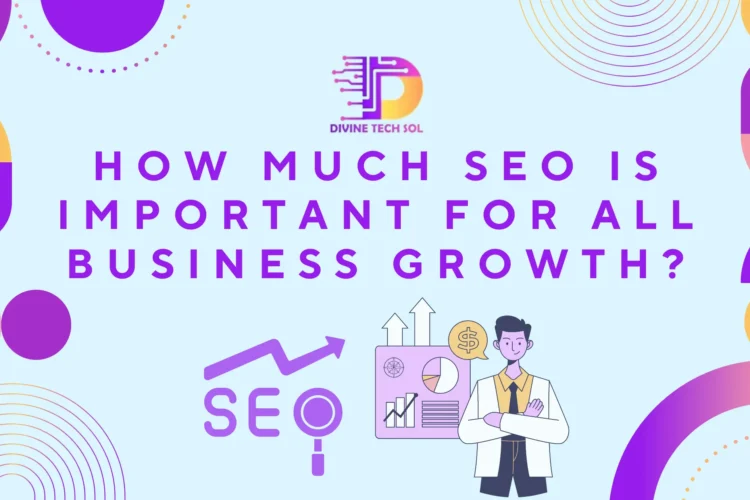
Building a website in 2024 can be as simple or complex as you need it to be. Whether you’re launching a small blog or a large e-commerce platform, the process involves several key decisions—choosing the right tools, understanding costs, and knowing who to work with. This guide simplifies the web development journey by explaining the costs involved, guiding you through developing a WordPress site, and exploring what website developers do to make your digital space functional and appealing. Dive into this essential guide to turn your vision into a fully functional website this year!
How Much Does It Cost to Make a Website?
Creating a website can be an investment that varies widely based on your needs and the complexity of your site. For basic projects, using a website builder can be very cost-effective, ranging from free to around $500 per month. More complex websites, such as those developed by professionals, can cost anywhere from $12,000 to $150,000 initially, with ongoing maintenance fees adding to the total expense. Variables that influence the cost include the design, the content management system used, domain and hosting fees, and additional features like e-commerce capabilities.
Considering long-term costs is crucial. Maintenance, marketing, and future upgrades can significantly affect your overall investment. Marketing expenses, for instance, can reach up to $12,000 per month, depending on the strategies employed such as SEO, PPC, and content creation.
How to Develop a WordPress Website?
Developing a WordPress website is straightforward and doesn’t require advanced technical skills. Here’s how you can get started:
- Choose a Hosting Provider: First, select a hosting service that supports WordPress. Many hosts offer easy one-click installation of WordPress, which simplifies the setup process. Consider factors like cost, reliability, and customer support when choosing your host.
- Install WordPress: Once you have your hosting ready, install WordPress. This can usually be done with a single click from your hosting control panel. After installation, you’ll receive credentials to access your WordPress dashboard.
- Select a Theme: WordPress themes determine how your site looks. Choose a theme that fits your brand and the purpose of your site. There are thousands of free and paid themes available. You can change themes with just a few clicks without affecting your existing content.
- Install Plugins: Plugins add functionality to your website. Essential plugins you might consider include those for SEO, security, and creating contact forms. For example, ‘Yoast SEO’ helps with search engine optimization, and ‘Wordfence Security’ provides firewall and malware scan services.
- Create Content: Start creating your pages and posts. WordPress has a built-in editor that makes it easy to add text, images, and multimedia. Organize your content with menus and categories to make it easy for visitors to navigate your site.
- Customize Your Site: Customize your site further by adjusting settings in the WordPress dashboard. You can set up widgets, change the background, and customize your header and footer.
- Launch Your Website: After setting everything up, review your site to ensure it looks good and functions well. Then, make your site public by changing the privacy settings.
By following these steps, you can have a professional-looking website up and running quickly. WordPress’s flexibility and ease of use make it an excellent choice for beginners and professionals alike.
What Website Developers Really Do?
Website developers are like the builders of the online world. They create websites from scratch, making sure everything works well and looks good. Their job involves writing code, which is a set of instructions for computers, to build and set up different parts of a website. This includes everything you can see, like images and text, and things you can’t, like the website’s structure and how it saves data.
Developers have different roles. Some focus on the front end, which means they work on what users interact with directly. They make sure the website is easy to use on any device, whether it’s a computer, phone, or tablet. Others work on the back end, dealing with the server and databases that help the website operate smoothly and keep user information safe.
Besides coding, developers also spend time fixing any bugs—these are errors that stop the website from working properly. They test different parts of the website to make sure everything functions as expected. Continuous learning is a big part of their job too, because new tools and technologies are always emerging.
In short, website developers play a crucial role in building the digital spaces we use every day, making sure they are effective, accessible, and secure. Their work is essential for helping businesses and individuals express themselves and connect with others online.
What Does a Website Developer Actually Do?
A website developer’s job is crucial for creating and keeping websites running well. They turn designs into real, working websites. Besides coding, they must make sure a website works well on all devices like phones and computers and that it’s easy to use. They often work with tools and languages such as HTML for creating web pages, CSS for styling, and JavaScript for adding interactive features.
Developers also play a key role in making sure websites show up in search engine results. They must keep up with the latest updates in technology and security to protect the website and user data. This part of the job involves testing the website to find and fix any problems before it goes live and regularly updating it to keep it fresh and secure.
Their work isn’t done alone; they frequently collaborate with graphic designers, content writers, and marketing teams to ensure the website serves its purpose well and reaches the intended audience effectively. As digital needs evolve, a developer’s skills must also adapt, making it a field that requires continual learning and adaptation.
Defining a Website Developer
A website developer is someone who builds and takes care of websites. They use special computer languages like HTML, CSS, JavaScript, and sometimes others like PHP or Python to create websites. Their main job is to make sure the website works well, loads fast, and does not have problems or errors.
Website developers can work in different places. Some work by themselves as freelancers, some work with a group in agencies, and others work at companies as part of a team. Where they work can change how much it costs to build a website and what the website can do. They need to keep learning new things because the way to build websites keeps changing. They also work with other people like designers and marketers to make sure the website looks good and works well for everyone who visits it.
Author
Muhammad Fahad
I am John Elliott, founder of Divine Tech Sol. My team excels in Digital Marketing, SEO, Social Media Marketing, PPC, and BPO services. We deliver innovative, cost-effective solutions to drive your business growth.





